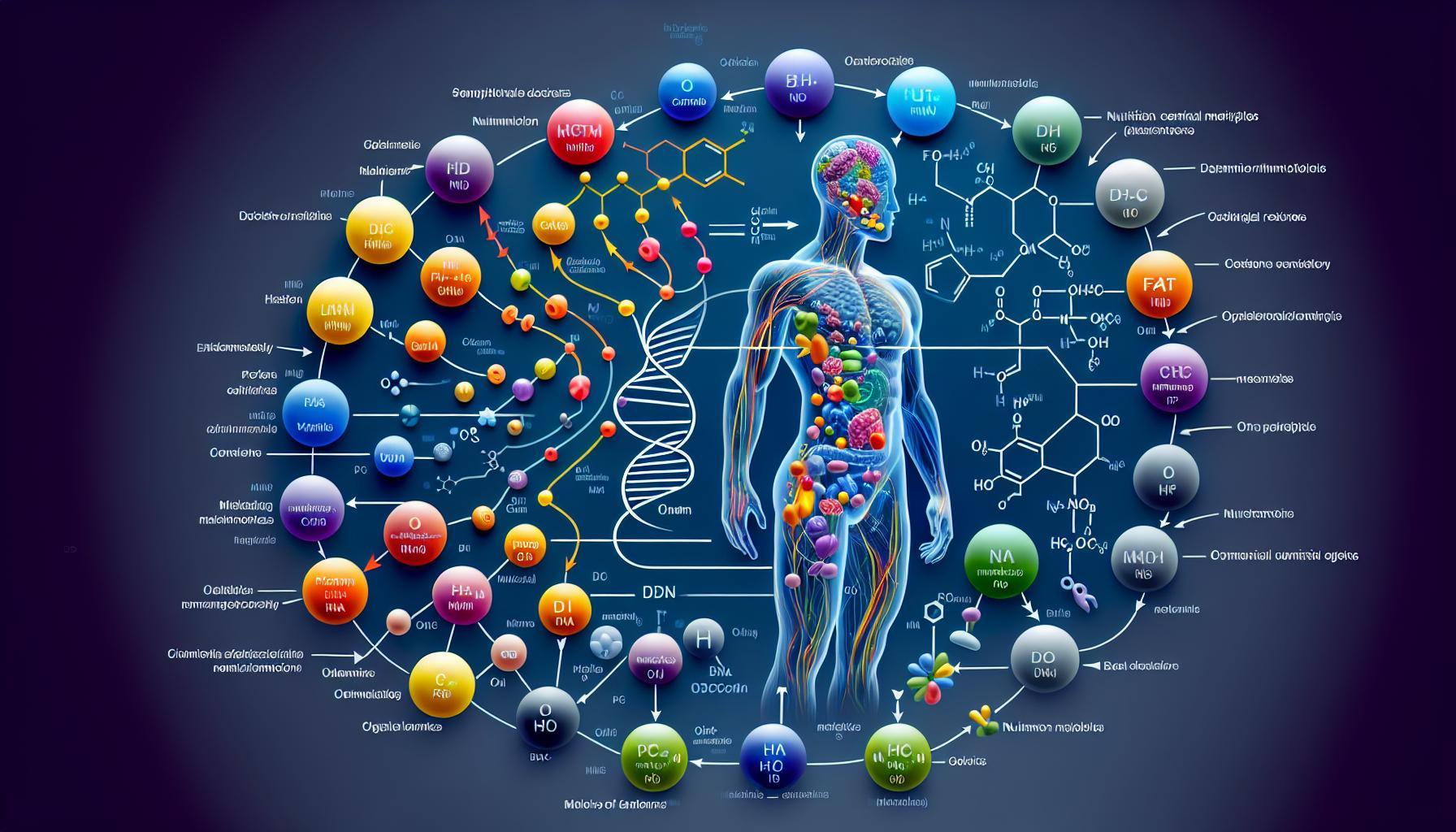Nutritional biochemistry and metabolism – the very mention of these scientific phrases might seem intimidating, but these are concepts that impact us in our day-to-day lives. They significantly influence our health, energy levels, and overall well-being. The captivating world of nutritional biochemistry revolves around how different nutrients and biochemical reactions in our bodies affect our health. In essence, you are what you digest and metabolize, not just what you eat. In this comprehensive blog post, we will delve into an accessible understanding of “Nutritional Biochemistry and Metabolism”. We will explore startling facets such as ‘How Enzymes Affect Digestion and Nutrition’, ‘The Role of Amino Acids in Metabolism’, and ‘Hormonal Effects on Nutrient Metabolism’. Read on and discover how your diet influences your body functions and what you can do to ensure optimum health.
Breaking Down Nutritional Biochemistry
Understanding Nutrition at a Molecular Level
Nutritional Biochemistry investigates how dietary compounds are digested, absorbed, and metabolized by our bodies. These processes often prioritize the release of energy and the synthesis of molecules essential for our survival.
The Role of Enzymes
The essential role enzymes play in nutritional biochemistry cannot be overstated. As biological catalysts, they speed up the processes through which nutrients are broken down into more basic building blocks. Without enzymes, digestion and absorption of nutrients become considerably slower and less efficient.
Metabolism 101
Unlocking Energy through Metabolism
Metabolism refers to a set of chemical reactions in the body that convert food into energy and other useful substances. These reactions are fundamental to life and occur in sequence to transform fuel into the compounds that perform various critical functions, such as protein synthesis and DNA replication.
Fueling Up with Metabolites
Metabolites form the endpoint of metabolism. These small molecules are instrumental in growth, development, functional maintenance, and reproduction. They also dictate energy flow and are indicative of the body’s overall physiological state.
Delving into Protein Metabolism
The Importance of Amino Acids
Amino acids essentially contribute to metabolism and perform essential functions ranging from tissue repair and muscle building to immune response and energy production.
Metabolic Pathways of Amino Acids
Metabolic pathways of amino acids are critical in human physiology and biomedical sciences. Understanding these pathways allows us to comprehend how the body utilizes different amino acids and what happens when there is a deficiency or excess.
Do Hormones Influence Nutrient Metabolism?
The Hormonal Impact on Nutrient Metabolism
Hormones can profoundly affect nutrient metabolism. They regulate the metabolism of carbohydrates, proteins, and lipids, and thereby, significantly influence our energy levels, body weight, and overall health.
Hormones and Weight Management
Hormones like insulin, leptin, and ghrelin play crucial roles in hunger and satiety signals. They also influence carbohydrate and fat metabolism, affecting body weight and obesity risk.
Personalizing Nutritional Biochemistry
The Genetics of Metabolism
Genetics exert a significant influence on individual metabolism rates and nutritional needs, accounting for differences in dietary responses among populations.
Nutrigenomics: Fueling Personalized Nutrition
Nutrigenomics merges genetics and nutrition to create a tailor-made diet considering an individual’s genetic profile. This promising approach may dramatically transform our perception of personalized nutrition.
The Future of Nutritional Biochemistry and Metabolism
Emerging Trends
Technological advancements are enhancing our understanding of nutritional biochemistry and metabolism. The surge of nutrigenomics and personalized nutrition illustrates the promising prospects in this field.
Cultivating Healthier Lives through Nutrition Science
The future of nutritional biochemistry and metabolism could pave the way for more focused dietary recommendations and interventions to cultivate healthier lives globally.
Conclusion
The exploration of nutritional biochemistry and metabolism expands our comprehension of how the foods we consume transform into energy and structural components within our bodies. From understanding the role of enzymes in digestion to recognizing how hormones impact our metabolism, we shed light on various facets integral to human health. As science progresses, we foresee a more personalized approach to nutrition, one that caters to individual genetic profiles, thereby heralding a new era in health and wellness.
Frequently Asked Questions
1. What is the role of enzymes in nutritional biochemistry?
Enzymes play a pivotal role in nutritional biochemistry. They act as biological catalysts that speed up biochemical reactions, thus facilitating the digestion and absorption of nutrients.
2. How do amino acids contribute to metabolism?
Amino acids, the building blocks of proteins, are crucial to metabolism. They help in tissue repair, muscle building, immune response, and energy production.
3. What is nutrigenomics?
Nutrigenomics is a relatively new branch of science that combines genetics and nutrition to create individualized dietary recommendations based on a person’s genetic profile.
4. How do hormones affect nutrient metabolism?
Hormones such as insulin and leptin regulate the metabolism of macros like carbs and fats. They also influence hunger and satiety signals, thereby affecting body weight and overall health.
5. What does metabolism refer to?
Metabolism refers to the series of chemical reactions in your body that convert food into energy and build or repair body tissues. It includes both anabolism (building molecules) and catabolism (breaking down molecules).










